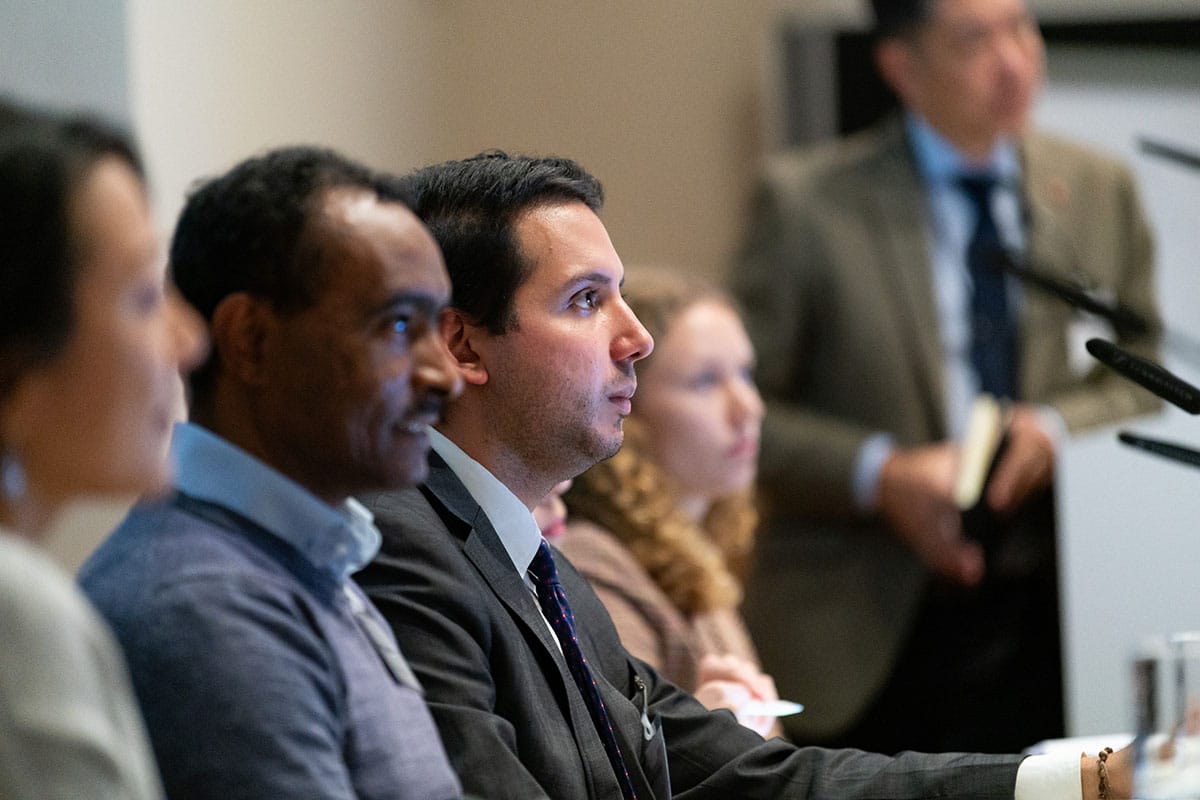The 2023 Max Planck Law Annual Conference took place 30 October—1 November at Harnack House in Berlin. Over a hundred researchers from the Max Planck Law network attended, engaging in discussions and presentations centred around this year’s theme, ‘crisis.’ This event highlighted the diversity and depth of legal scholarship within the Max Planck Society and emphasized the growing interconnectedness and collaborative spirit within the network.
This year, the conference was preceded for the first time by an induction session for researchers new to the network, helping them to understand more about the Max Planck Society, working and living in Germany, and how to start a research project.
The conference proper began with keynote speech of the conference on by Professor Hélène Ruiz Fabri (Sorbonne Law School, Université Paris 1; former Director) on ‘Law as a Discipline of Crisis’. The presentation sought to bring to light the risks involved when lawyers react too quickly to political crises. Law is a double-edged sword, it can help manage a crisis, but it can also be ‘weaponized’ to achieve short-term political ends.
The keynote was followed by a presentation of the Max Planck Law Initiatives, given by the organizers of the Initiatives themselves. This was an opportunity for researchers to discover the great diversity of Initiatives on offer and to find out how they can get involved.
Next came a spotlight on individual researchers showcasing their research around the theme of crisis. Despite the large panel—comprising Johanna Bücker , Sandra Michelle Röseler , Roberto Ramos Obando , Gebreyesus Abegaz Yimer , Daria Kim , and Kritika Sharma —the researchers managed to present their papers in a highly engaging way, giving rise to interesting questions from the audience.
Late afternoon was reserved for the second and final keynote of the day, ‘The Law is Dead, Long Live the Market: Confronting Migration’s Permacrisis’, presented by Professor Neha Jain (Northwestern University, Chicago/EUI, Florence). Professor Jain offered a thought-provoking exploration of the narratives around migration to show that the so-called migration crisis is more a crisis of the law, rather than migration itself.
The Institutes that are part of the Max Planck Law network are spread across different cities and regions. To give researchers a sense of all the Institutes together, the last session of the day involved an invitation to ‘explore the network’ under one roof. Each Institute was represented by a poster and each poster was hosted by representatives from the relevant Institute. Some representatives showed off their Institute’s books and handed out giveaways. All had the opportunity to serve refreshments and to chat to researchers who circulated through the lobby.
The second and last day of the conference began with a departmental showcase, featuring researchers and guests at the Max Planck Institute for Comparative Public Law and International Law . The showcase was entitled ‘A Distant War? Latin America, International Law, and Russia’s War against Ukraine’. The session was chaired by Max Planck Law Fellow, Professor René Urueña, with interventions from Dr Alina Cherviatsova, Dr Gustavo Prieto, Dr Viktoriia Lapa, and Daniel Quiroga-Villamarín.
The conferenced concluded with a final session on career development, in which two Max Planck Law almunae, Dr Anselm Küsters, (Centrum für Europäische Politik) and Dr Giacomo Rugge, (Council of the European Union) discussed career options that do not require a German state exam.
Overall, the 2023 Max Planck Law Annual Conference was a resounding success, fostering scholarly exchange, interdisciplinary connections, and offering fresh perspectives on the role of law in times of crisis. It underscored Max Planck Law’s dedication to excellence in legal research and its commitment to a supportive and collaborative academic network.


